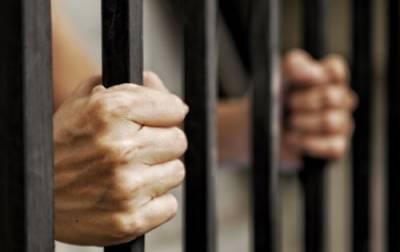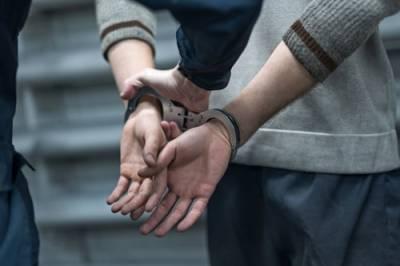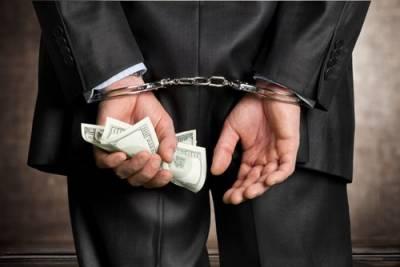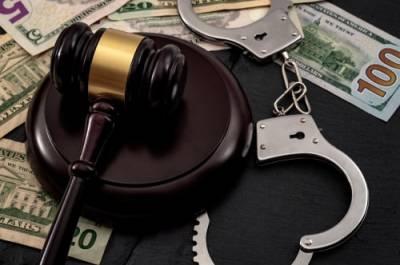Recent Blog Posts
How Long Will I Stay in Jail if I Am Arrested for DWI?
 If you have been arrested for driving while intoxicated (DWI) in Texas, you may wonder how long you will have to stay in jail. The answer to this question depends on several factors, including the circumstances of your arrest, your criminal history, and any concerns that you may pose a threat to public safety. While a DWI conviction may lead to a prison sentence in some situations, you can take steps to defend against drunk driving charges, and by securing a bail bond, you can be released from custody while your case is ongoing. By working with a bail bondsman to post bail, you can avoid disruption to your life and ensure that you will be able to address legal concerns during your case.
If you have been arrested for driving while intoxicated (DWI) in Texas, you may wonder how long you will have to stay in jail. The answer to this question depends on several factors, including the circumstances of your arrest, your criminal history, and any concerns that you may pose a threat to public safety. While a DWI conviction may lead to a prison sentence in some situations, you can take steps to defend against drunk driving charges, and by securing a bail bond, you can be released from custody while your case is ongoing. By working with a bail bondsman to post bail, you can avoid disruption to your life and ensure that you will be able to address legal concerns during your case.
Jail Time for a DWI Conviction in Texas
In Texas, the penalties for a DWI conviction can be severe, and you may be required to serve time in prison, or you may be placed on probation, ordered to perform community service or receive substance abuse treatment, and required to use an ignition interlock device in any vehicles you drive for a certain period of time. The length of the jail sentence for a DWI offense depends on whether it is your first, second, or subsequent offense. Other aggravating factors, such as causing injury or death while driving under the influence, may also affect the length of a sentence.
Are Burglary Arrests More Common in the Summer?
 Burglary is a serious criminal offense that involves the unlawful entry of a structure with the intent to commit a crime. This offense may be classified as either residential or commercial burglary, depending on whether burglary was committed in a private home or a place of business. Burglary may involve theft, as well as violence against the people in a building or other illegal activities. As such, law enforcement agencies take burglary seriously. People who are arrested on charges related to burglary will need to understand how to proceed, including how they can post bail and be released from police custody.
Burglary is a serious criminal offense that involves the unlawful entry of a structure with the intent to commit a crime. This offense may be classified as either residential or commercial burglary, depending on whether burglary was committed in a private home or a place of business. Burglary may involve theft, as well as violence against the people in a building or other illegal activities. As such, law enforcement agencies take burglary seriously. People who are arrested on charges related to burglary will need to understand how to proceed, including how they can post bail and be released from police custody.
Burglary Statistics
The U.S. Department of Justice reports that over one million burglaries take place each year in the United States. The months when burglaries happen most often are June, July, and August. Most burglaries take place during the daytime when people are away from home. However, in around one out of every four residential burglary cases, a person is at home when the offense occurs.
What Are My Rights During a Police Interrogation After Being Arrested?
 Being accused of a crime can be a frightening experience. When you are arrested, handcuffed, placed in a police car, and taken to a police station or detention facility, you are likely to be intimidated and worried about whether you may say or do the wrong thing. Fortunately, you have rights in these situations, and you can protect yourself and avoid words or actions that could be incriminating. You can also take steps to get released by contacting a bail bondsman and posting bail. By understanding the best approach to take in these situations, you can make sure you will be able to resolve your criminal case successfully.
Being accused of a crime can be a frightening experience. When you are arrested, handcuffed, placed in a police car, and taken to a police station or detention facility, you are likely to be intimidated and worried about whether you may say or do the wrong thing. Fortunately, you have rights in these situations, and you can protect yourself and avoid words or actions that could be incriminating. You can also take steps to get released by contacting a bail bondsman and posting bail. By understanding the best approach to take in these situations, you can make sure you will be able to resolve your criminal case successfully.
Your Rights as a Criminal Suspect
The rights that apply to you may differ depending on whether you are being interviewed or interrogated. Police officers may perform interviews at the scene of a crime, speaking to witnesses to gain information about what happened. They may also interview witnesses or suspects during investigations, and these interviews may take place in various locations, including a person's home or a police station. The statements given during interviews may be used during the investigation or prosecution of a crime, and your words could potentially be used against you in a criminal case.
UPDATE: Five Things You Should Know About Surety Bonds in the State of Texas
 Originally published: February 9, 2017 -- Updated: June 20, 2023
Originally published: February 9, 2017 -- Updated: June 20, 2023
Update: Below, you can learn some important facts about bail and the bail bond process. However, it can also be helpful to understand what surety bonds are exactly and what role they play for people who have been arrested. This can ensure that people who need to be released from custody and family members who provide financial assistance to loved ones who have been arrested will be prepared to handle these issues correctly.
A surety bond may be used in any situation where one party guarantees that another party's debts will be paid. Surety bonds may be used in a variety of ways. For example, in business contracts where one party wants a guarantee that the other party will pay the amounts owed, a third party may provide that guarantee through a surety bond. If the surety company is required to make payments on behalf of a party that owed a debt, they may then collect the amount paid from that party.
What Happens if I Am Arrested for Violating the Conditions of Bail?
 If you are arrested for a criminal offense in Texas, you may be released on bail before your trial. Bail will require you to pay a certain amount to the court, which will be returned after the completion of your case. Because the amounts of bail can be high, and you may not be able to afford to pay thousands of dollars or more to be released, you may obtain a bail bond. In these cases, a bail bondsman will pay bail on your behalf, and you will usually only be required to pay 10 percent of the total amount of bail. When you are released on bail, certain conditions will be imposed on you by the court. It is important to understand what can happen if you violate the conditions of bail.
If you are arrested for a criminal offense in Texas, you may be released on bail before your trial. Bail will require you to pay a certain amount to the court, which will be returned after the completion of your case. Because the amounts of bail can be high, and you may not be able to afford to pay thousands of dollars or more to be released, you may obtain a bail bond. In these cases, a bail bondsman will pay bail on your behalf, and you will usually only be required to pay 10 percent of the total amount of bail. When you are released on bail, certain conditions will be imposed on you by the court. It is important to understand what can happen if you violate the conditions of bail.
How Courts Address Violations of Bail Conditions
Courts set bail for two main reasons: to make sure defendants appear for court hearings or other legal proceedings and to protect the safety of the public. Requiring a person to put down a certain amount of money is meant to make sure they will not flee the area or refuse to participate in legal proceedings in order to avoid being convicted. Placing conditions on bail is meant to prevent a person from taking actions that could harm their alleged victims or others after they have been released.
Will White Collar Crime Charges Result in High Amunts of Bail?
 There are many different types of offenses that can result in arrests and criminal prosecution. In many cases, police officers are focused on crimes that put people at risk of harm, such as DWI or assault. However, offenses involving the theft of money or other property are also taken very seriously. In some cases, people may be arrested for crimes involving fraud or deception. These are sometimes referred to as white collar crimes, and even though they usually do not involve violence, they can result in financial losses for people and businesses. Because of this, they are taken very seriously by law enforcement, and those who are arrested may be required to pay high amounts of bail before they can be released.
There are many different types of offenses that can result in arrests and criminal prosecution. In many cases, police officers are focused on crimes that put people at risk of harm, such as DWI or assault. However, offenses involving the theft of money or other property are also taken very seriously. In some cases, people may be arrested for crimes involving fraud or deception. These are sometimes referred to as white collar crimes, and even though they usually do not involve violence, they can result in financial losses for people and businesses. Because of this, they are taken very seriously by law enforcement, and those who are arrested may be required to pay high amounts of bail before they can be released.
Types of White Collar Crimes
Offenses that are classified as white collar crimes include:
-
Fraud - This may involve any actions in which money or property was obtained through deception. It may include scams where someone lies about their identity or uses false information, such as when a person convinces someone to make payments by claiming that they owe fines or taxes. Fraud may also involve the use of stolen credit cards or other financial information.
5 Things You Should Do if You Are Arrested and Charged With a Crime
 Getting arrested is never a pleasant experience. Being detained by police officers, handcuffed, placed in a police car, taken to a police station or jail, and booked into custody can be a confusing and stressful situation, and you may not know what to do or where to turn for help. However, it is important to remember that you have rights, and there are steps you can take to protect yourself if you find yourself in this situation. Some of the most crucial considerations will be related to bail and bail bonds, which can help you get out of jail and return to your life as you address the criminal charges against you. Fortunately, there are some things you can do to protect yourself:
Getting arrested is never a pleasant experience. Being detained by police officers, handcuffed, placed in a police car, taken to a police station or jail, and booked into custody can be a confusing and stressful situation, and you may not know what to do or where to turn for help. However, it is important to remember that you have rights, and there are steps you can take to protect yourself if you find yourself in this situation. Some of the most crucial considerations will be related to bail and bail bonds, which can help you get out of jail and return to your life as you address the criminal charges against you. Fortunately, there are some things you can do to protect yourself:
-
Stay calm and remain silent: When you are detained by a police officer following a traffic stop or another situation, it is important to remain calm. Getting angry or struggling in any way could lead the officers to treat you more harshly, and you could end up facing charges for resisting arrest in addition to the original offense that led to the arrest. You should also understand your right to remain silent. Anything you say can be used against you in court, so it is crucial to keep quiet until you have legal representation, even if you believe you are innocent. Make sure you ask to speak to a lawyer as soon as possible, and do not answer any questions from the police or prosecutors without your attorney present.
What Is the Bail Process After a Domestic Violence Arrest in Texas?

Being arrested for domestic violence in Texas can be a frightening and stressful experience, and it can have a long-lasting impact on your personal and professional life. If you or a loved one find yourself in this situation, it is important to understand the bail process to make sure you can get released from jail quickly. In many cases, your best option for being released quickly is to secure a bail bond. With the help of a bail bondsman who has experience working with personnel in jails, detention facilities, and courts in the Dallas area, you can get out of jail as quickly as possible and move forward with your life.
Bail and Bail Bonds in Family Violence Cases
Bail is a payment made to the court to ensure that a defendant appears for their scheduled court dates. The amount of bail that must be paid is set by the judge during an arraignment hearing, which is usually held within 48 hours of an arrest. However, in domestic violence cases, the judge may consider holding the defendant without bail until their trial. This decision will be based on the severity of the alleged domestic violence offense, prior domestic violence convictions, and other issues.
What Are My Options for Paying for a Bail Bond?

When someone is arrested, they usually have the option to post bail to be released from jail while awaiting trial. However, the cost of bail can be quite high, and not everyone has the means to pay it upfront. In such cases, people can turn to bail bond services, which will usually allow them to pay a fraction of the bail amount and have a bail bondsman cover the rest. However, many people have limited financial options, especially on a short-term basis when a person needs to get out of jail as soon as possible. Raising the amount needed to pay for a bail bond may seem difficult. Fortunately, there are a variety of payment options that may be available.
Bail Bond Payment Options
There are a variety of factors that can influence the amount of bail a person must pay before they can be released from police custody. These include the severity of the offense they were arrested for, their previous criminal history, the potential danger they may present to people in the community, and whether they are likely to flee rather than appear in court during their case. In many cases, bail may be several thousand dollars, and for serious offenses such as violent crimes, a person may be required to pay tens or even hundreds of thousands of dollars.
What Factors Will Lead to Higher Bail After a Texas DWI Arrest?

If you have been arrested for DWI in Texas, you may be wondering when you will be able to get out of jail. While you may face criminal charges for operating a vehicle while intoxicated by alcohol or drugs, your case will not be resolved right away. However, you most likely will not be held in jail throughout your entire criminal case. Instead, you can be released after paying bail, which is an amount of money that is meant to ensure that you will return to court when required during your case.
A bail bond is often your best bet for paying the amount set by a judge. A bail bondsman can pay bail on your behalf, and you will only pay a percentage of the total amount (usually 10 percent). However, you may be unsure about where there are any issues that could lead to a higher bail amount, making it more difficult for you to pay the amount required. In general, the severity of the offense, the criminal history of the defendant, and the possibility that the defendant is a flight risk are the main factors that will be considered when setting bail. However, there are other factors that can also play a role in bail decisions.










